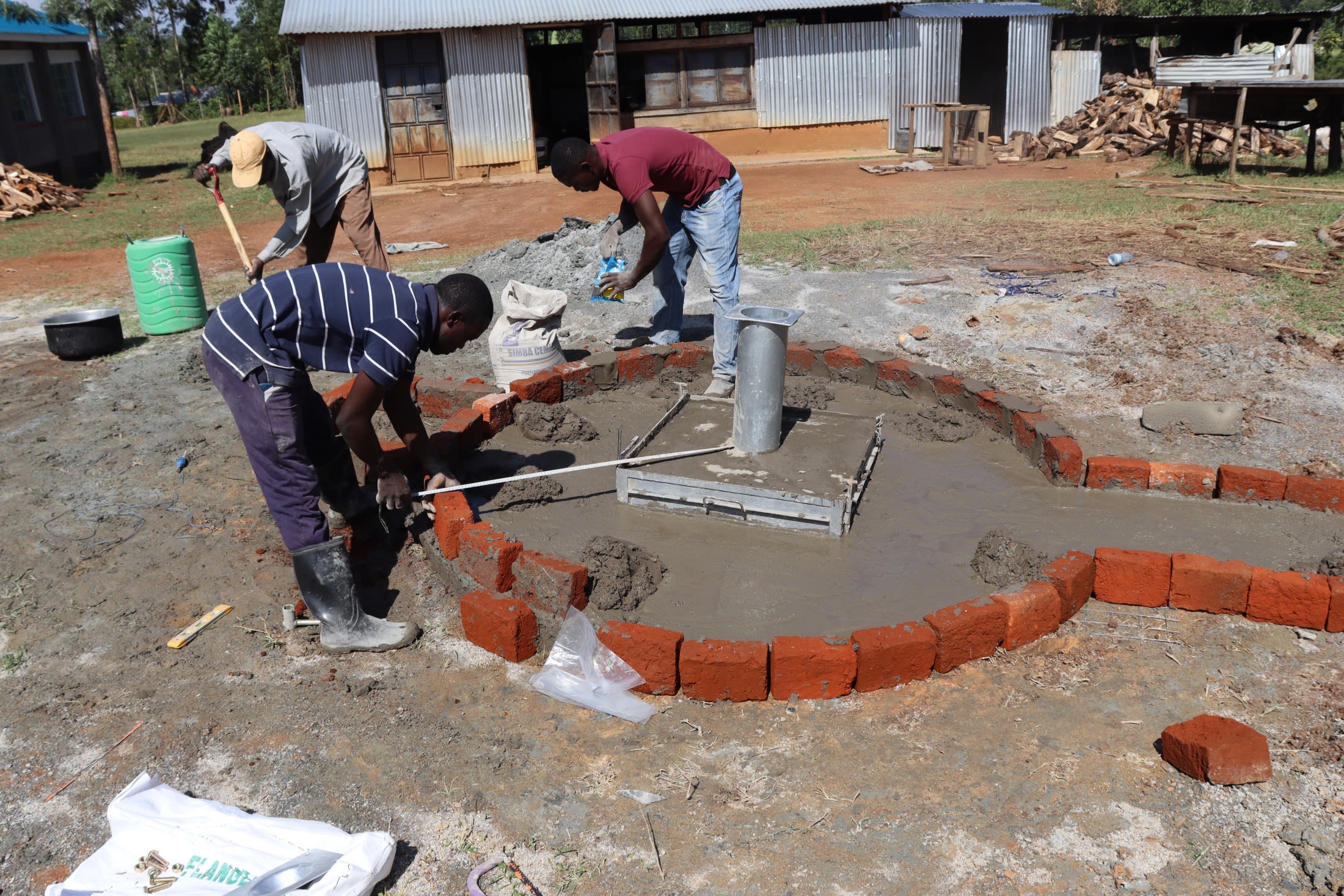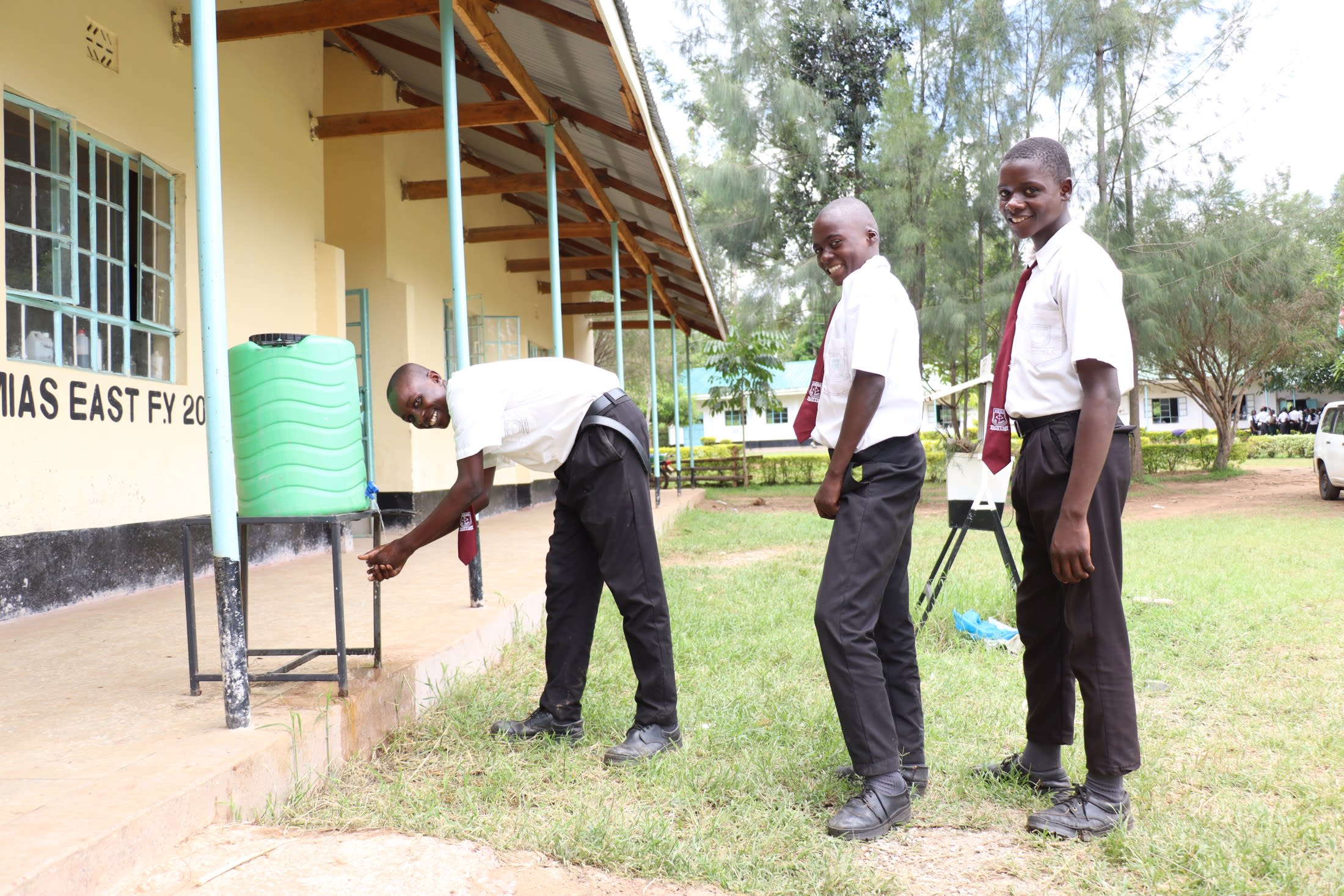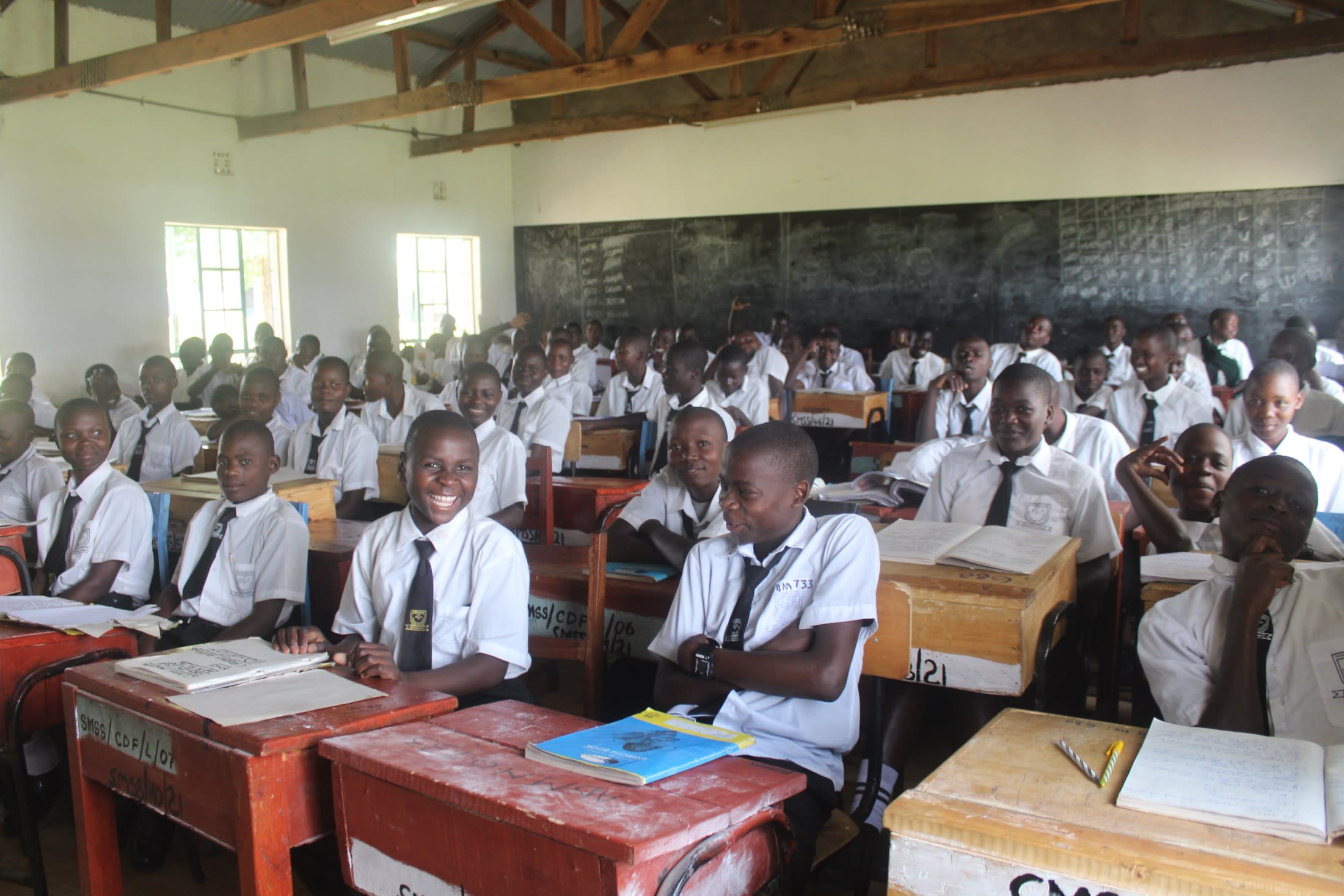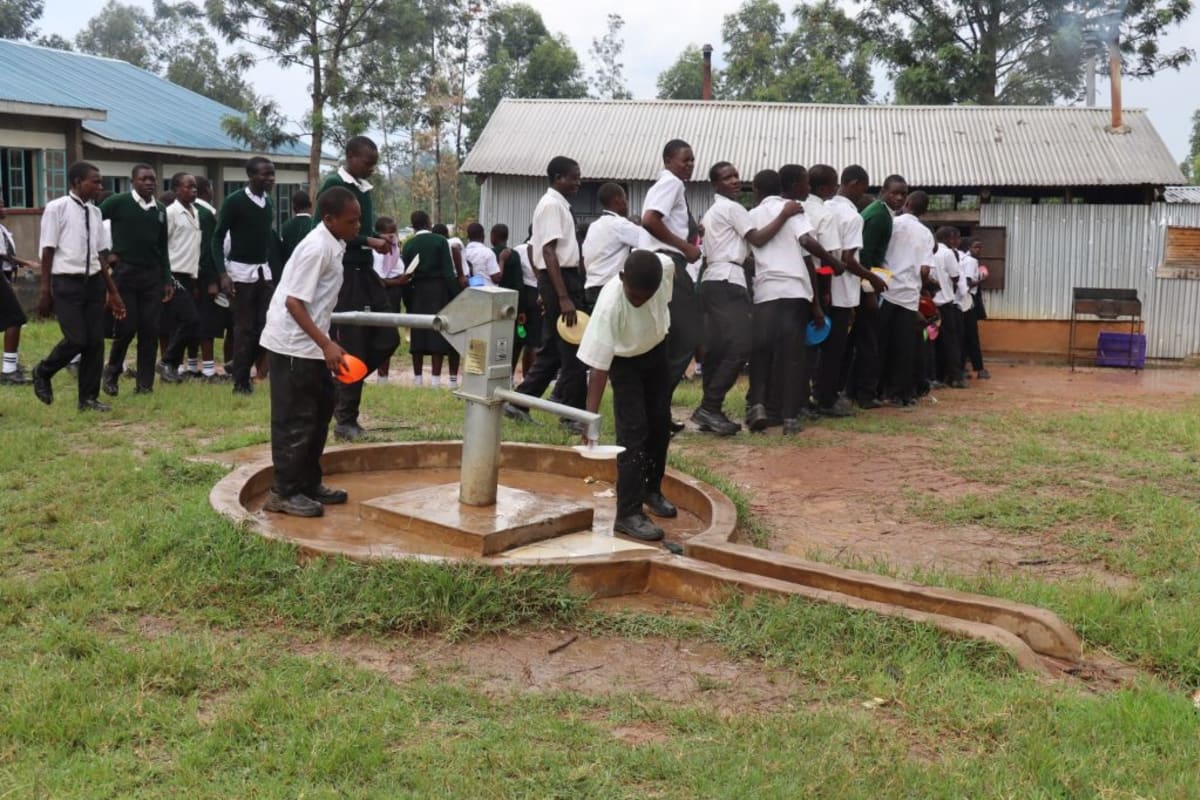The 546 students and staff at St. Lukes's ACK Shanderema Secondary School struggle to collect sufficient water every day to meet their needs. The dug well on the school campus cannot provide sufficient water since it is not deep enough, which is especially apparent during the drought seasons when the well dries.
When the water runs out, the school administration must purchase water, but they often do not have the finances.
"Since the water is not enough and thus does not meet the needs of the school, I am forced to buy water from the vendors to be used by the school," said Mr. Peter Ayila. (seen below).
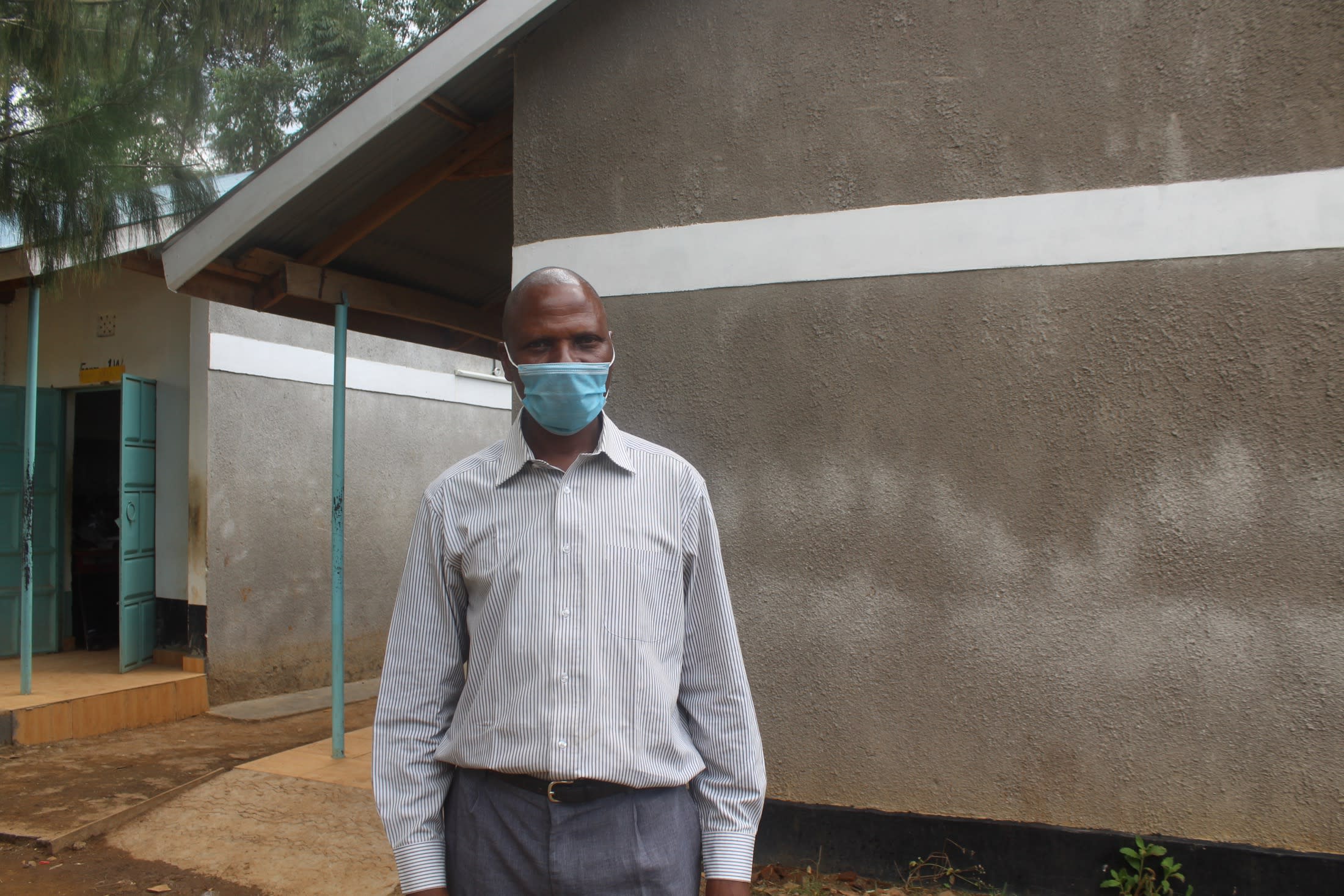
When the school doesn't have the necessary finances to purchase water, students are forced to bring water from home. But hauling full, heavy containers of water is tiring and time-consuming, so understandably, students try to avoid the task. However, when they arrive to school without water, teachers force them to return home during class, wasting time that should be used to concentrate on their studies.
Another issue is that any water the well does provide is contaminated, and those drinking it struggle with waterborne diseases such as cholera, typhoid, and dysentery.
"I waste a lot of time trying to queue for water since we only have one water source that serves the whole school. Sometimes I do not get to drink the water since the queue is long and the water flows at a low rate," said 16-year-old student Lucy N. (shown below).

Hopefully, drilling a new well at St. Luke's ACK Shanderema Secondary School will allow students' health to improve and for them to save time and energy to improve their learning.
What We Can Do:
New Well
We conducted a hydrogeological survey at this school, and the results indicated the water table beneath it is an ideal candidate for a borehole well. Due to a borehole well's unique ability to tap into a safe, year-round water column, it will be poised to serve all of the water needs for this school's large population, even through the dry season.
The school will help collect the needed construction materials such as sand, rocks, and water for mixing cement. They will also provide housing and meals for the work team, in addition to providing local laborers. We will complement their materials by providing an expert team of artisans and drilling professionals, tools, hardware, and hand-pump. Once finished, the school’s students and staff will use water from the well for drinking, handwashing, cooking, cleaning, and much more.
The school and we strongly believe that all of these components will work together to improve standards at this school, which will help lead to better student academic performance and unlock the opportunity for these students to live better, healthier lives.
Handwashing Stations
The student health club will oversee two new handwashing stations we will provide and ensure they are kept clean and in working condition. The club leaders will fill the handwashing stations with water daily and make sure they are always supplied with a cleaning agent such as soap or ash.
VIP Latrines
Two triple-door latrine blocks will be constructed with local materials that the school will help gather. Three doors will serve the girls, and three doors will serve the boys. These new latrines will have cement floors designed to be easy to use and clean. And with a new well right on school property, there should be enough water to keep them clean.
Training on Health, Hygiene, and More
We will hold a one-day intensive training session with students, teachers, and parents. This training will cover a wide range of topics, including disease transmission routes and prevention; personal and environmental hygiene; and the operation and maintenance of the borehole, latrines, and handwashing stations. There will be a special emphasis on handwashing.
Our team of facilitators will use various methods to train, including participatory hygiene and sanitation transformation and asset-based community development. We will initiate a student health club, which will prepare students to lead other pupils into healthy habits at school and home. We will also lead lectures, group discussions and provide illustrative handouts to teach health topics and promote good hygiene practices within the school, including handwashing and water treatment. We will then conduct a series of follow-up training before transitioning to our regularly scheduled support visits throughout the year.
We and the school strongly believe that all of these components will work together to improve standards at this school, which will help lead to better student academic performance and will help unlock the opportunity for these students to live better, healthier lives.

 Borehole Well and Hand Pump
Borehole Well and Hand Pump
 Rehabilitation Project
Rehabilitation Project












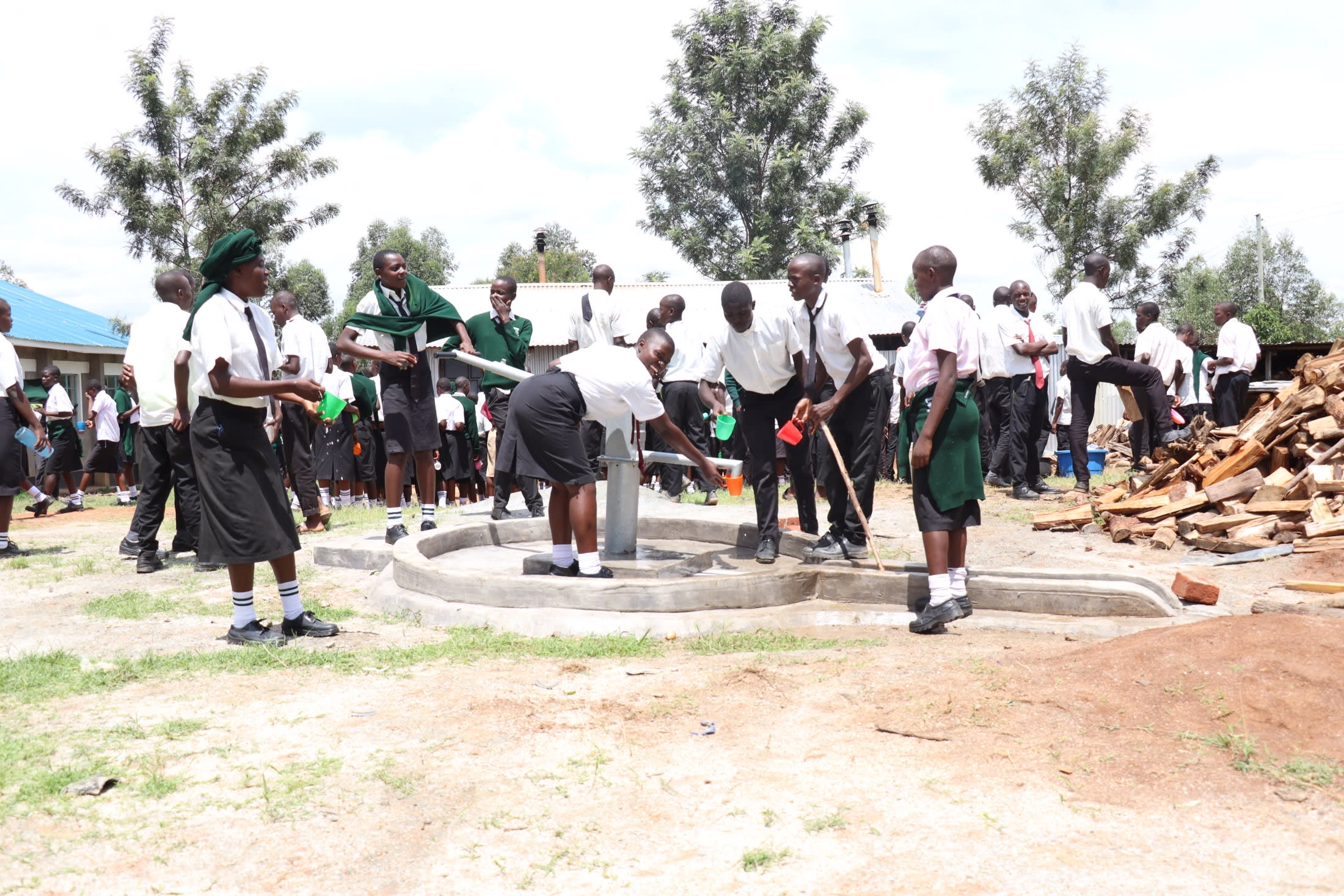

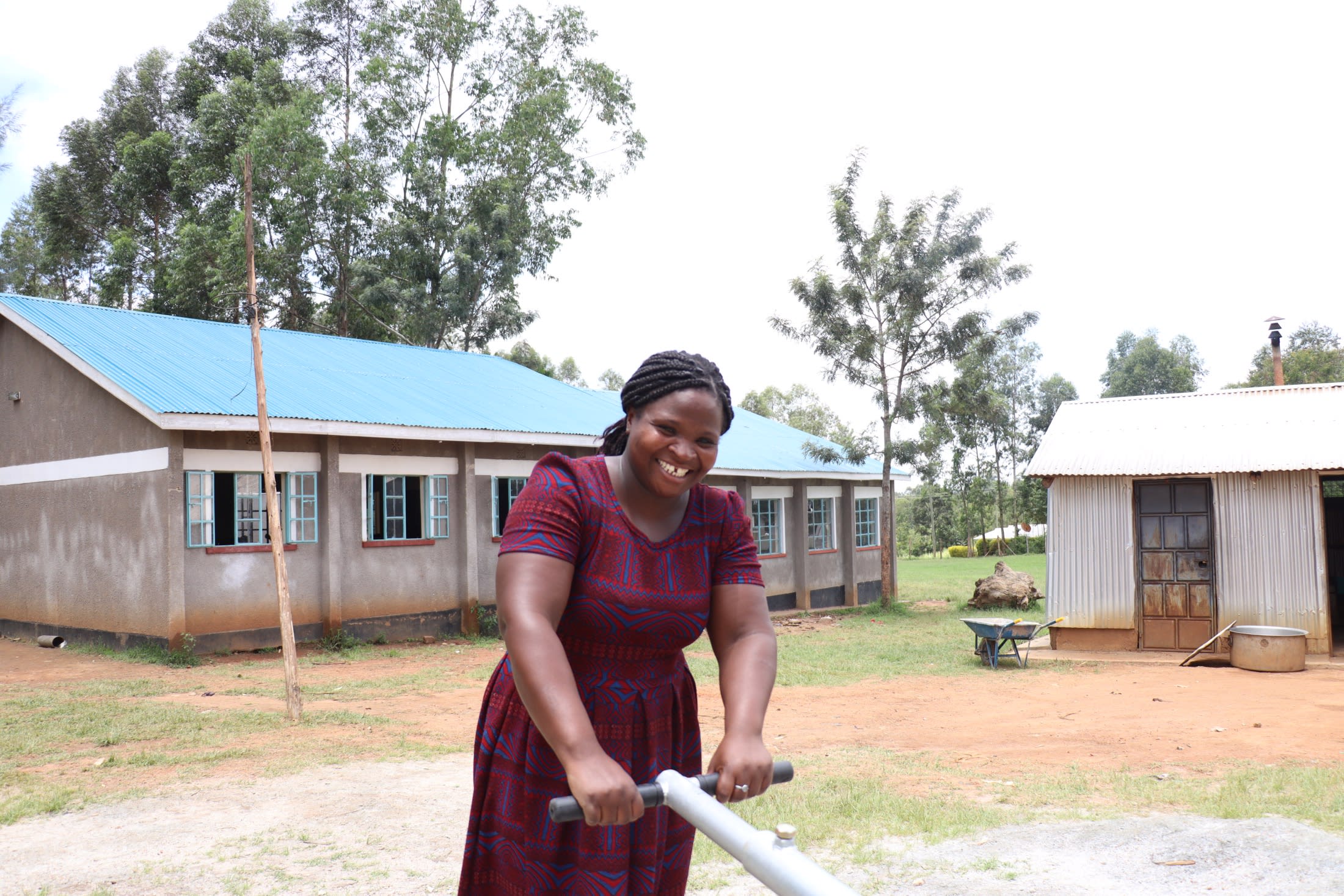

 After water treatment, we constructed a cement well pad to seal off the well from any ground-level contaminants. Tiles are installed beneath the spout to protect the cement from the erosive force of the water.
After water treatment, we constructed a cement well pad to seal off the well from any ground-level contaminants. Tiles are installed beneath the spout to protect the cement from the erosive force of the water.